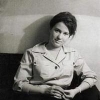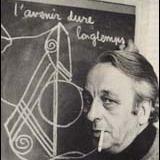-
Posts
21 -
Joined
-
Last visited
About missmend
- Birthday 12/27/1990
Profile Information
-
Gender
Female
-
Location
Philadelphia, PA
-
Interests
Post-WWII in Eastern Europe (specific interests - Germany, Poland, Hungary). Memory politics and collective memory. History of violence. Women's history and participation in war, violence, resistance, and revolution.
-
Application Season
2016 Fall
-
Program
Applying: MA and PhD
Recent Profile Visitors
2,289 profile views
missmend's Achievements

Decaf (2/10)
7
Reputation
-
Ray_Valentin91 started following missmend
-
 wacyeah reacted to a post in a topic:
Whatcha reading?
wacyeah reacted to a post in a topic:
Whatcha reading?
-
I think I tend to like journalists writing history when they're actually writing memoirs that discuss now-historical topics (8 Pieces of Empire by Lawrence Scott Sheets comes first to mind), because the good ones don't pretend to be academics. I've enjoyed Timothy Snyder's work, though admittedly I haven't cracked open my copy of Bloodlands yet. He does a fine job of presenting both statistics and records surrounding particular battles as well as larger cultural implications. He has one chapter in Memory and Power in Postwar Europe, which is a collection I also recommend, specifically about Poland and Lithuania that I found particularly excellent. Politics of Memory in Postwar Europe is another collection I'm going through now, and I've been recommended Wounds of Memory by Maja Zehfuss for close examination of memory in Germany immediately after 1945. Tony Judt's Postwar was also the bible for my European history classes in undergrad and even though it put me to sleep, it's worth a look. And although I agree with most other posters here about journalists writing as historians, I'll still recommend Hannah Arendt and Eichmann in Jerusalem, particularly if you're reading for her descriptions of reactions to the trials.
-
 Sigaba reacted to a post in a topic:
Whatcha reading?
Sigaba reacted to a post in a topic:
Whatcha reading?
-
 Gambaosaka1 reacted to a post in a topic:
Whatcha reading?
Gambaosaka1 reacted to a post in a topic:
Whatcha reading?
-
 wacyeah reacted to a post in a topic:
Whatcha reading?
wacyeah reacted to a post in a topic:
Whatcha reading?
-
There's nothing I love more than watching academics get passive aggressive. I get the impression that Buruma really doesn't have much patience for specialists himself, since he doesn't really refer to historians in his book much if at all. @wacyeah - I hadn't heard of Hiroshima Traces, but it looks fascinating. I know Susan Southard has a new book about post-bombing and post-war Nagasaki coming out, but I'm not familiar with her work (other than she's not an academic).
-
 rising_star reacted to a post in a topic:
Two (completely different) research interests, mention in SOP or no?
rising_star reacted to a post in a topic:
Two (completely different) research interests, mention in SOP or no?
-
I'm not in your field, but I was forwarded this article in regards to SoP content - http://psychology.unl.edu/psichi/Graduate_School_Application_Kisses_of_Death.pdf. Since it specifically talks about psychology applicants, it may be worth a read. In short, it does dissuade from talking about personal or family mental health; "The discussion of a personal mental health problem is likely to decrease an applicant’s chances of acceptance into a program. Examples of this particular KOD in a personal statement included comments such as “showing evidence of untreated mental illness,” “emotional instability,” and seeking graduate training “to better understand one’s own problems or problems in one’s family.” More specifically, one respondent stated that a KOD may occur “when students highlight how they were drawn to graduate study because of significant personal problems or trauma. Graduate school is an academic/career path, not a personal treatment or intervention for problems.”" I'd probably avoid mentioning it, or phrase it vaguely that you have it experience with systems and diagnoses, but its not private matters.
-
missmend started following Fall 2016 Applicants , Family Disclosure in S.O.P. , Two (completely different) research interests, mention in SOP or no? and 2 others
-
 history_geek reacted to a post in a topic:
Two (completely different) research interests, mention in SOP or no?
history_geek reacted to a post in a topic:
Two (completely different) research interests, mention in SOP or no?
-
 MathCat reacted to a post in a topic:
Two (completely different) research interests, mention in SOP or no?
MathCat reacted to a post in a topic:
Two (completely different) research interests, mention in SOP or no?
-
I can only go by your post, but it sounds like you should take a step back and really ask yourself what it is you want to study. And you need to be brutally honest. Medieval and modern history are two completely different beasts with very, very different content. As a medievalist, you will be trained in skills that will have limited to no translation into twentieth century history - you'll need to learn Latin, Old Irish, Old English, paleographic skills. In a PhD program, you'll be doing research with and for professors who will be introducing you into the world of academia, making connections with other scholars and schools, becoming familiar with a very narrow subset of journals, methods, literature, etc. This is great if you want to stay in medieval studies, but they'll be no help to you if you want to ultimately study modern events. Furthermore, it does bring into question your commitment; a PhD is a six year commitment to one subject, and if your ultimate goal is not to work with that topic, you need to reconsider if its right for you, or the decision will be made for you by admissions committees. Granted, there are ways you could connect the two, but it does require significant thought as to the connection. Off the top of my head, if you're interested in something like how medieval Ireland and Celtic culture were brought up and used in Irish national movements in the 19th and 20th centuries, there's a possible crossover. Even there, though, you would primarily be a modern historian. Frankly from your first post, it sounds like you have more skills working with modern history and a greater interest in that time. I'm not trying to discourage you from contacting said professor or having varied interests, but to suggest you should really, truly, be ready to commit to one study and stop flirting with one on the side.
-
Finishing up Ian Buruma's Wages of Guilt: Memories of War in Germany and Japan. It's certainly clear that he's European and much more familiar or invested in German reconstruction, and I'd love to read a counterpart written by someone native to Japan. I also picked up HHhH by Laurent Binet, initially to skim through for one quote, but now rereading earnestly. Easily far and away my favorite piece of historical fiction.
-
I had searched through the forums and found more threads that been about whether to contact or not instead of phrasing. Still, overlooked that, and thanks for the link.
-
I know there's been discussion here in the past over whether or not to contact professors at prospective programs - some say it's helpful, some say it runs the risk of annoying professors, some decry it as a distraction, and some find it absolutely essential to their field or subfield. So instead of rehasing that debate, I'm looking for advice, as someone who's decided that contacted PoIs is needed. People who've done it before - how have you phrased your emails, your questions, your research interests? I'm struggling with finding a good way to phrase things without sounding too overly formal or too star-struck/sycophantic. When did you find was the best time to do so (I know 'early', but rather 'do I find out when the school is on spring break so I won't bother them during a busy period')?
-
@ultrafiche - I third (or fourth) Indiana - their Russian program is excellent, especially for language offerings and acquisition. I'm not sure how their history department fares for modern Americanists, but, after speaking with some students there, I hear there's a funding preference towards American and Asian history. I personally am a little wary of Penn because of extreme funding cuts with regard to Russian history, and their Slavic department is extremely tilted towards lit/lang. U Chicago has Eleanor Gilbund, who works on cultural history and exchange in modern Russia, so I would give a look. Yale also has really strong faculty in US Cold War and cultural history (Matthew Jacobson, John Gaddis).
-
@HeimatHistorian - I'm aware of that, and I don't plan to go anywhere that refuses to provide funding. That said, it's still something I feel I have to take into account (even if its a normal amount of credit card debt). History isn't an especially lucrative field, and Russia/Eastern Europe is a fading and unpopular area right now, so stipends aren't plentiful and traveling is expensive.
-
 Heimat Historian reacted to a post in a topic:
Whatcha reading?
Heimat Historian reacted to a post in a topic:
Whatcha reading?
-
I'm terrible in that depending on mood and the time I have to read, I'll bounce from book to book. I think I have something like 5-6 sitting on my nightstand right now and another in my purse. Frank Herbert, Dune (because it's essentially required reading if you want to understand anything in Lynch's film) Tara Zahra, The Lost Children: Reconstructing Europe's Families after World War II Ian Kershaw, Stalinism and Nazism Padraic Kenney, A Carnival of Revolution: Central Europe 1989 I also read a ton of comics (I work in a comic shop, so it's pretty mandatory) and have been reading Matt Fraction's Casanova series in their new hardcover. I used to be a big X-Men fan but their books have been so bad lately I'm ready to declare the franchise dead
-
@knp - There was a point where I was trying to convince myself I wanted to do one topic over another, but ultimately, I did need to be honest with myself about what I was willing to go into debt and devote 10+ years of school for. That, ultimately, is memory of WWII in Eastern Europe, particularly looking at how women revolutionaries and resistance fighters are remembered and entered into pop culture. My (two and a half) bachelors theses were on the RAF in West Germany and modern portrayals of Ulrike Meinhof, but geographically, I'm more interested eastward. That said, I do have continued interest in Japanese/German post-war recovery and speculative fiction of the 50s and 60s, but these weren't enough to form either cohesive projects or to keep me motivated for the next few decades.
-
Semi-started on applications already - it's been much more tolerable to write essays than to study for the GRE. Even though I'm taking it in June, so, priorities! So far the short list is three MAs - Indiana-Bloomington, U Glasgow, and possibly the Central European University, even though they seem sketchy on accreditation - and one PhD, U Chicago. I feel like it's too short of a list, since it seems like most people apply to 6-8.
-
Because I can't be the only one who's started. Primarily I'm looking at MA programs due to language prep and lack of area experience, but I've got a longshot PhD program application as well (U Chicago). What about the rest of you?
-
Hey y'all Yet another one of these topics, but early for Fall 2016 (I work full and part time, so I'm starting early). I've been a bit concerned about format and tone for this thing, so I'm worried it comes off as the bizarre Frankenstein of a cover letter and academic essay. Would anybody be willing to take a look at the draft I have so far give some pointers? The one I have is written and tailored to a specific MA program, but I also plan on applying to PhD programs in history.
-
@Heimat Historian - that's primarily what I've been thinking. I'm looking at schools whose history departments have both a modern Germanist and a modern Japanologist that work on post-war issues. Elizabeth Heineman's work looks pretty interesting just from what U Iowa has posted on her page, so I'll have to check her out, even though our interests don't seem to overlap beyond time and place. @elinen - I know Sebastian Conrad is at Frei Universitaet in Berlin and his work is absolutely phenomenal on this exact topic. Mainly, my ignorance of European academia is keeping me US focused, but happy for suggestions or advice on Europe. I've been looking at MA programs for the most part - I have a pretty strong German background but nothing on East Asia, and I'm pretty sure that puts the kabosh on applying to PhD programs on the subject. So places like Columbia and Harvard and Vanderbilt I've avoided looking at, at least for this round of applications, until I feel more confident as a PhD candidate.




